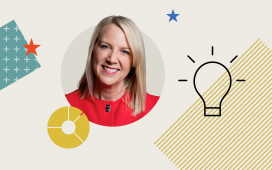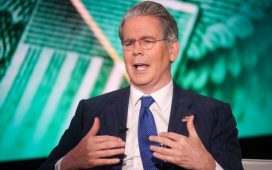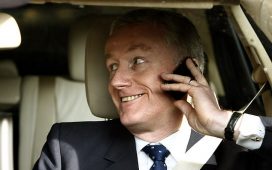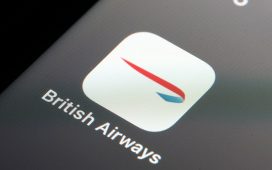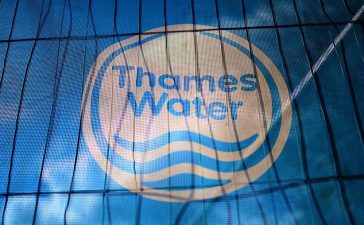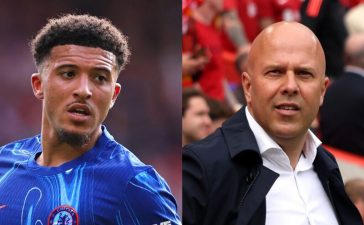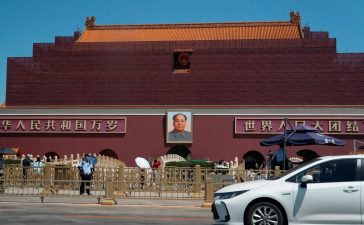
Berkshire’s results suggest the 93-year-old Buffett, one of the world’s most revered investors, is growing wary about the broader U.S. economy or stock market valuations that have gotten too high.
The results were released on Saturday after a stock market selloff that pushed the Nasdaq into correction territory, while a weak jobs report sparked worries about U.S. economic activity and whether the Federal Reserve waited too long to cut interest rates.
“If you look at the entire Berkshire picture and the macroeconomic data, a safe conclusion is that Berkshire is getting defensive,” said Cathy Seifert, an analyst at CFRA Research who rates Berkshire a “buy.”
The cash stake grew to $276.9 billion as of June 30 from $189 billion three months earlier largely because Berkshire sold a net $75.5 billion of stocks in the quarter. It was the seventh straight quarter Berkshire sold more stocks than it bought.Berkshire sold about 390 million Apple shares, on top of 115 million shares sold from January to March, as Apple’s stock price rose 23%. It still owned about 400 million shares worth $84.2 billion as of June 30.Second-quarter profit from Berkshire’s dozens of businesses rose 15% to $11.6 billion, or about $8,073 per Class A share, from $10.04 billion a year earlier.Nearly half of that profit came from Berkshire’s insurance businesses, including a more than tripling of underwriting profit at the Geico car insurer.
But revenue rose just 1% to $93.65 billion, and barely changed in major businesses such as the BNSF railroad and Berkshire Hathaway Energy.
Net income fell 15% to $30.34 billion from $35.91 billion a year earlier, as rising stock prices in both periods boosted the value of Berkshire’s investment portfolio, including Apple.
Buffett has long urged shareholders to ignore Berkshire’s quarterly investment gains and losses, which often lead to outsized net profits or net losses.
BUFFETT WANTS TO SPEND, BUT DOESN’T
Berkshire pledges to keep a minimum $30 billion of cash, but often lets it build up when it can’t find whole businesses or individual stocks to buy at fair prices.
Its returns from short-term Treasuries, however, should decline once rate cuts begin.
Berkshire is also using less cash to buy back its own stock, repurchasing just $345 million in the second quarter and none in the first three weeks of July.
“We’d love to spend it, but we won’t spend it unless we think we’re doing something that has very little risk and can make us a lot of money,” Buffett said at Berkshire’s May 4 annual meeting, referring to Berkshire’s cash.
Berkshire did not immediately respond to a request for comment on Saturday.
Buffett remains a big Apple fan, reflecting the iPhone maker’s strong pricing power and committed customer base.
He said at the meeting that he expected Apple to remain Berkshire’s largest stock investment, but selling made sense because the 21% federal tax rate on the gains would likely grow.
Since mid-July, Berkshire has also sold more than $3.8 billion of shares in Bank of America, its second-largest stock holding.
Buffett has led Omaha, Nebraska-based Berkshire since 1965, building it into a conglomerate with dozens of businesses also including many industrial and manufacturing companies, a big real estate brokerage, Dairy Queen and Fruit of the Loom.
Vice Chairman Greg Abel, 62, is expected to eventually succeed Buffett as Berkshire’s chief executive.
GEICO UNDERWRITING PROFIT TRIPLES
Quarterly insurance profit rose 54% to $5.58 billion, benefiting from more investment income and Geico’s ability to charge higher premiums even as drivers submitted fewer claims.
Profit at BNSF fell 3% as the railroad set aside more money for lawsuits, offsetting lower operating costs and greater shipping of consumer and agricultural products.
Lawsuits also weighed on Berkshire Hathaway Energy, where profit fell 17% because of the PacifiCorp utility unit, which many homeowners and businesses blame for causing Oregon wildfires in 2020.
PacifiCorp set aside $2.7 billion for wildfire losses as of June 30, up from $2.4 billion three months earlier, and said losses could grow significantly.
Berkshire’s Class A shares closed Friday at $641,435. They are up 18% this year, while the Standard & Poor’s 500 is up 12%.


